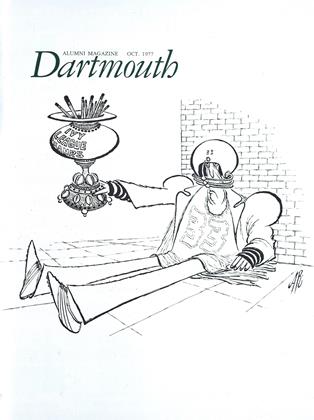A large majority of adult Americans - some estimate as high as 80 per cent - do not have valid, up-to-date wills and effective estate plans. Why men and women will put 40 or more years of hard work into accumulating an estate for their security in retirement and the future welfare and comfort of their families and other individuals and institutions they care for, but will not take the few hours and dollars necessary to work out with their attorneys effective plans for accomplishing these objectives, is beyond comprehension. It is true, nevertheless, and countless cases of human tragedy and unnecessary financial loss resulting from nonexistent or out-of-date estate plans are grim testimony to this fact.
In this little gem of a book, William Clay covers this subject which is so important to all of us but which all too many sinfully neglect. It examines briefly and non-technically the many vital aspects of estate planning and leaves no doubt in the reader's mind as to why such planning is crucial to the future welfare of himself and those he loves.
Clay is a distinguished tax and estate planning attorney, eminently qualified to write this book. Moreover, he has the remarkable ability to make complex, heavy subjects interesting and understandable. Estate Planning is 99 pages of bright, clear prose which take no more than two hours to read. There are another 43 pages of sample will, trust, and power of attorney forms, plus useful tables and a glossary of terms. Short chapters, layman's language and numerous interesting examples make the book very readable and easy to comprehend. Yet it more than adequately covers the many complex facets of a complex subject, such as creating security in working and retirement years; saving taxes; selecting a qualified attorney, executor, trustee and guardian; protecting and providing for one's spouse and children; reviewing life, accident, and health insurance; and about 20 other major aspects of estate planning.
Estate Planning is unique in being the only book available which not only covers the many aspects of estate planning for the layman but also has been revised to emphasize the profound changes introduced in this area by the Tax Reform Act of 1976. It is literally true that because of TRA '76, wills and estate plans that were effective and up-to-date in 1976 can be outof-date and ineffective in a number of important ways in 1977.
Clay properly emphasizes that this is no "doit-yourself treatise but simply a layman's guide. As he writes, "You must, above all, employ well-qualified legal counsel. Then and only then will your estate planning reflect your needs." The book responds to three allimportant questions: "Why should you create an estate plan? What kind of estate plan should you choose? When should you review and revise your estate plan?" In answering these questions so effectively, Clay has indeed done a great service for those who will have the wisdom to read and to heed his book.
THE DOW JONES-IRWIN GUIDETO ESTATE PLANNINGBy William C. Clay Jr. '37Dow Jones-Irwin, 1977. 142 pp. $9.95
For more than 12 years, Robert Kaiser hasdirected Dartmouth's Bequest and Estate Plan-ning Program.
 View Full Issue
View Full Issue
More From This Issue
-
 Feature
FeatureMen and Women: What's the Difference?
October | November 1977 By Dan Nelson, Shelby Grantham -
 Feature
FeatureThe Singing of the Cider
October | November 1977 By Sanborn Brown -
 Feature
FeatureThe Bakke Case
October | November 1977 By John G. Kemeny -
 Feature
FeatureWith Pen In Hand...
October | November 1977 By Arnold Roth -
 Class Notes
Class Notes1971
October | November 1977 By THOMAS G. JACKSON -
 Article
Article"My hardships were excessive"
October | November 1977
Books
-
 Books
BooksALUMNI PUBLICATIONS
June 1917 -
 Books
BooksCHAUCERIAN ESSAYS.
February 1953 By HEWETTE E. JOYCE -
 Books
BooksA NAVAL LOG,
October 1945 By Homer Howard, Lieut. Comdr., USNR. -
 Books
BooksOBLOMOV
MAY 1930 By JR. W. Jones -
 Books
BooksDR. SEUSS' SLEEP BOOK.
DECEMBER 1962 By MAUDE D. FRENCH -
 Books
BooksA Student's Philosophy of Religion
June, 1922 By W. H. WOOD


